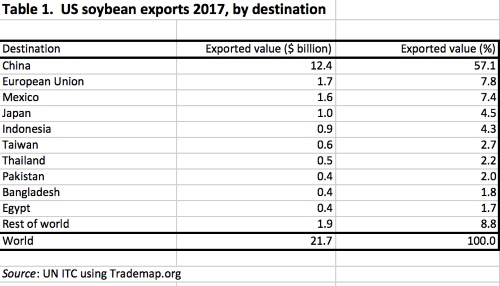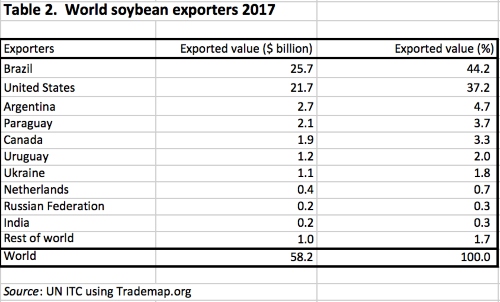Trump repeats mistakes of Nixon, Carter in trade war with China
School children learn that Adolf Hitler repeated Napoleon Bonaparte’s great mistake by attacking Russia at the onset of winter. But Donald Trump hasn’t grasped that history lessons apply to trade battles as well as military campaigns. Instead, he is angering the farm belt with his tariff wars, reminiscent of two White House predecessors.
To control domestic prices, Richard Nixon restricted soybean exports to Japan, a maneuver that accelerated Brazilian soybean production and gave the Japanese people a lasting penchant for food self-sufficiency — all to the grief of American farmers.
{mosads}To punish Russia, Jimmy Carter halted wheat exports during the Afghanistan war of the 1970s, prompting a farm revolt and inspiring Ronald Reagan to promise “never again.” Meddling with farm exports helped neither Nixon nor Carter, and it won’t help Trump.
The soybean saga exemplifies Trump’s predicament. To correct the Chinese dragon, Trump has embarked on an escalating tariff war. But economic sanctions in pursuit of ambitious goals seldom succeed when targeted against a major power. Instead of saluting Trump, China retaliated, and U.S. soybean exports are a conspicuous victim.
The global economics of soybean trade can be summarized in two tables. Table 1 shows the destination of U.S. soybean exports in 2017. China bought almost 60 percent; the European Union bought less than 10 percent.

Table 2 shows world exporters of soybeans in 2017. Brazil led (thanks in part to Nixon) with 44 percent of world exports; the U.S. followed with 37 percent.

Thanks to Trump’s tariff war and predictable Chinese retaliation with a 25-percent tariff on soybeans, U.S. exports to China will fall in 2018 and 2019 and bring much lower prices, at a time when the U.S. crop reaches a record level (4.8 billion bushels, almost 10 percent larger than the previous year). These numbers spell real pain in the farm belt.
Trump tells American farmers that it is their patriotic duty to suffer for the greater cause of punishing China. Similar pitches by Nixon and Carter didn’t fly, and Trump will probably not persuade the farm belt to vote solid red in the November midterm election.
Recognizing his predicament, Trump has offered the farm constituency two palliatives. The first is a one-time $12 billion “trade relief” program, spread across all farmers, with uncertain disbursement dates or amounts.
The scale of this program is far too small to make farmers whole, even if they accept checks from Uncle Sam as a substitute for market sales.
The second palliative was a vague promise by the European Union to buy more U.S. soybeans. As Table 1 shows, the European Union is a small market compared to China, and since the EU tariff on soybeans is already zero, it’s not clear what EU bureaucrats can do to boost U.S. soybean exports.
The certain upshot of Trump’s tariff war is that soybean exports from Brazil and other suppliers will enjoy higher prices, as China shifts its purchases away from the U.S., while soybean exports from the U.S. will suffer lower prices. That’s not a combination that will gladden the hearts and win the votes of the American farm belt.
Gary Clyde Hufbauer is a nonresident senior fellow at the Peterson Institute for International Economics.
Copyright 2023 Nexstar Media Inc. All rights reserved. This material may not be published, broadcast, rewritten, or redistributed. Regular the hill posts







